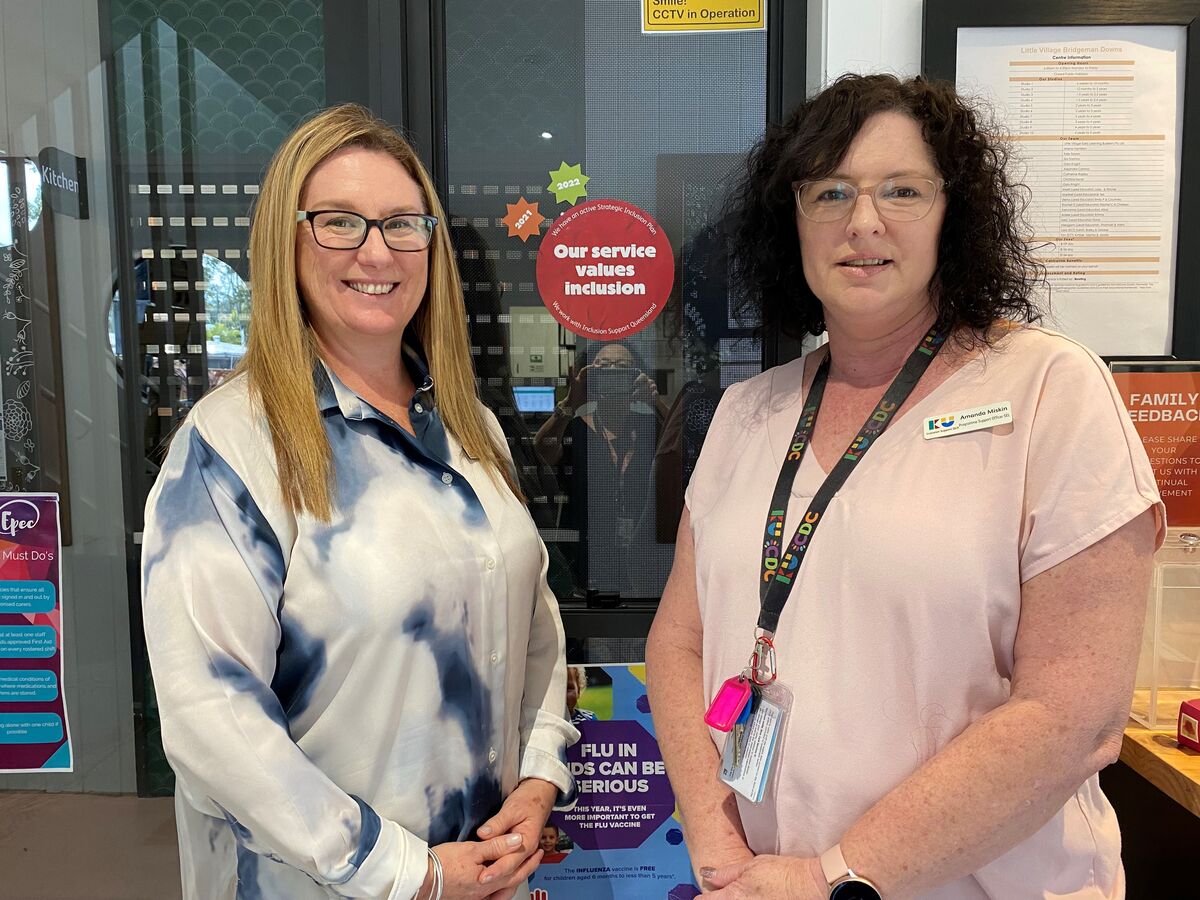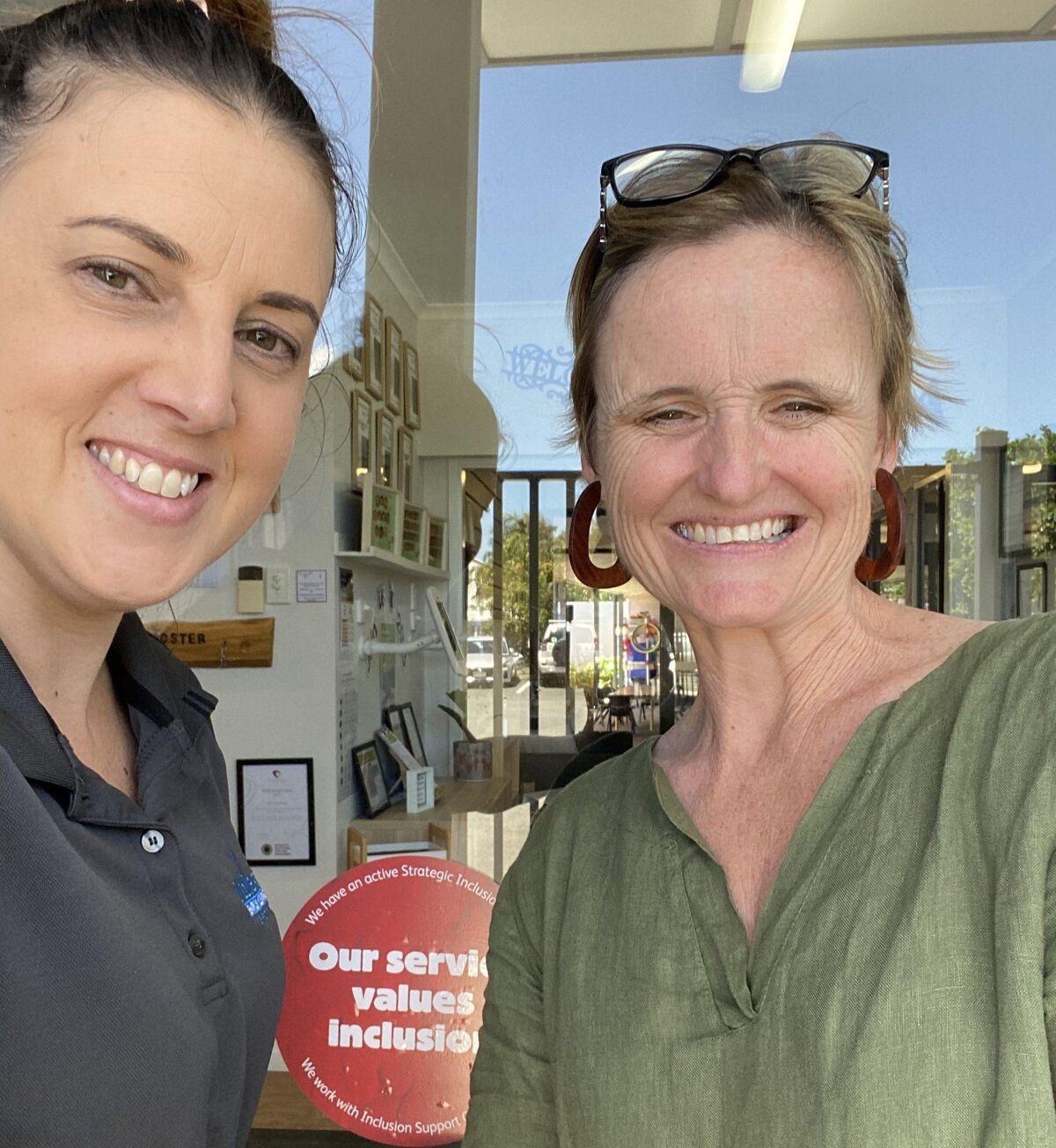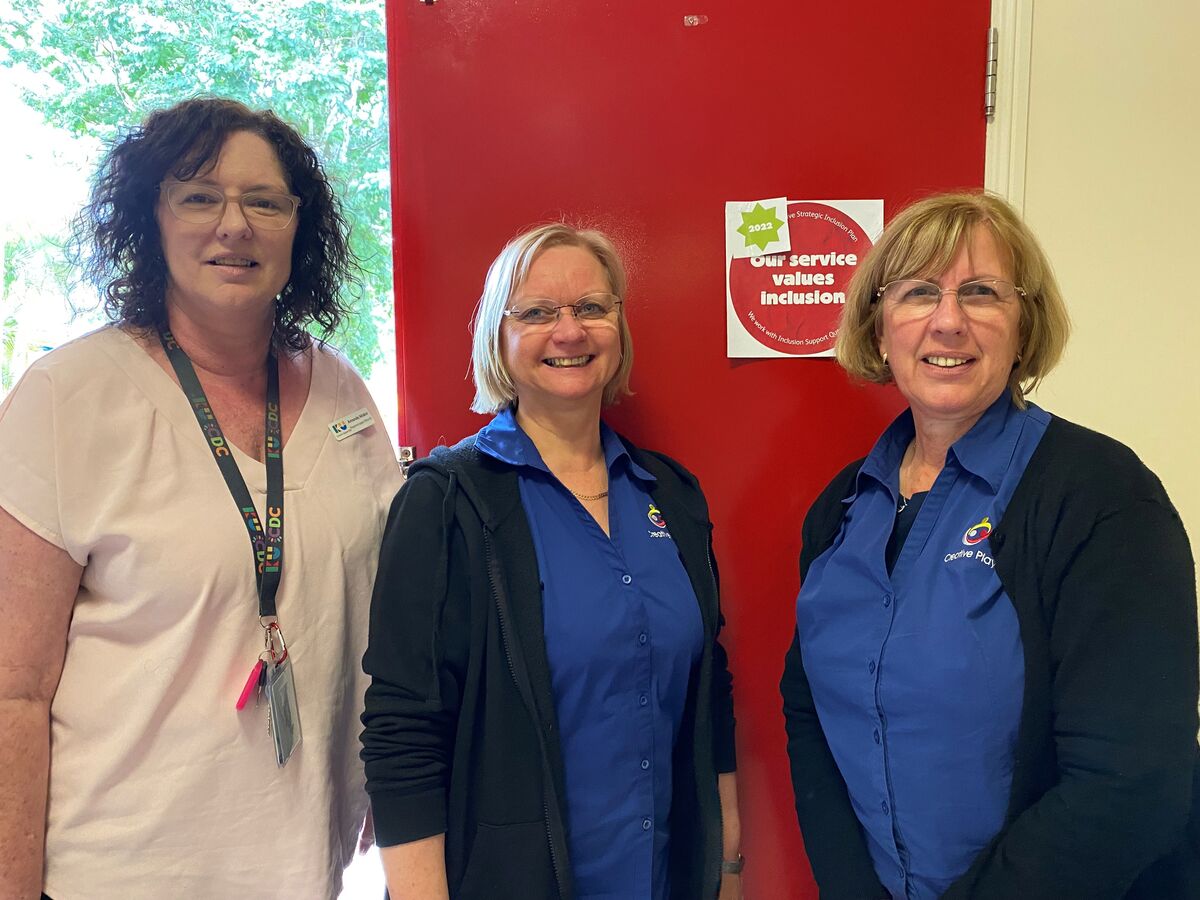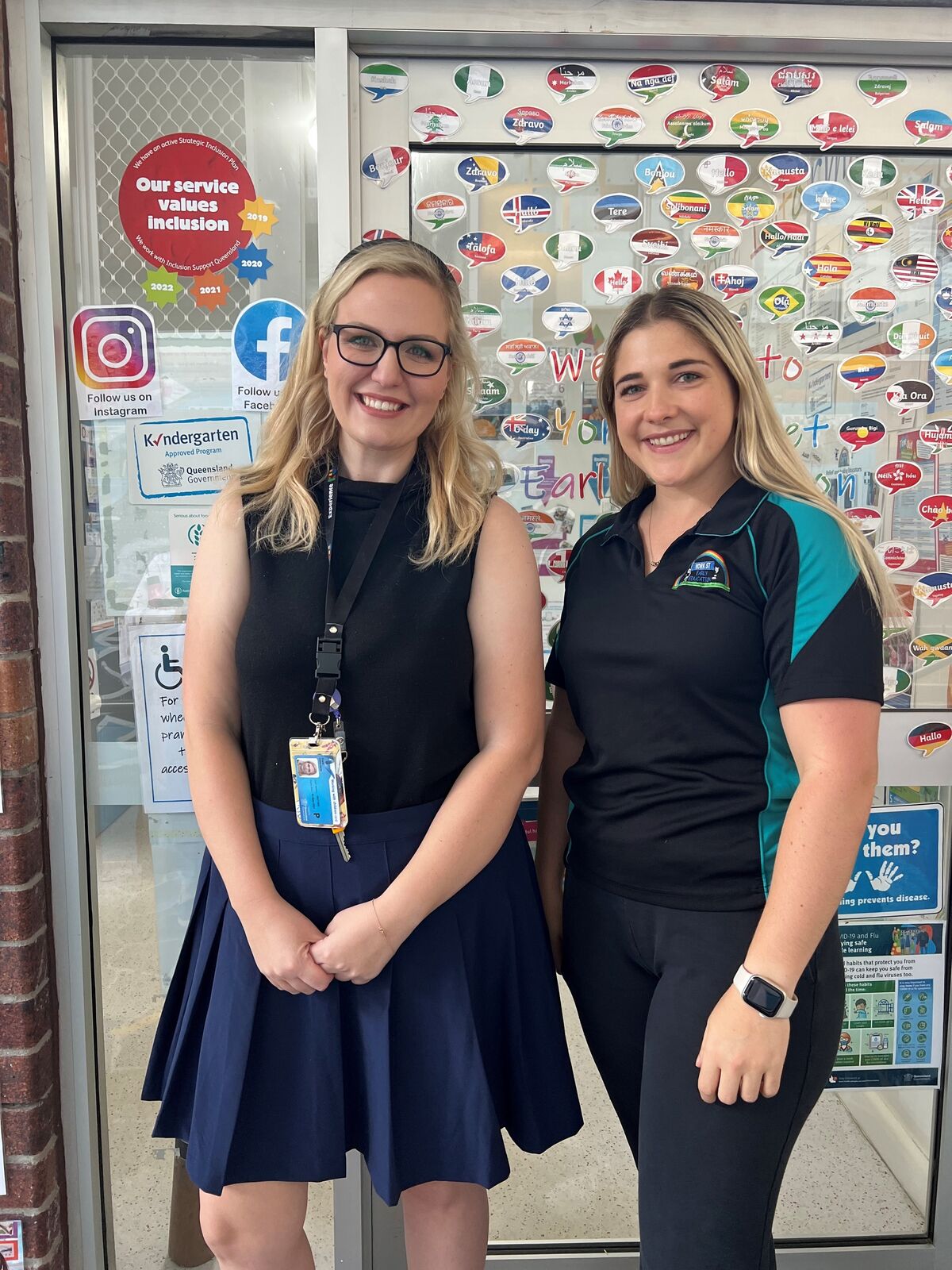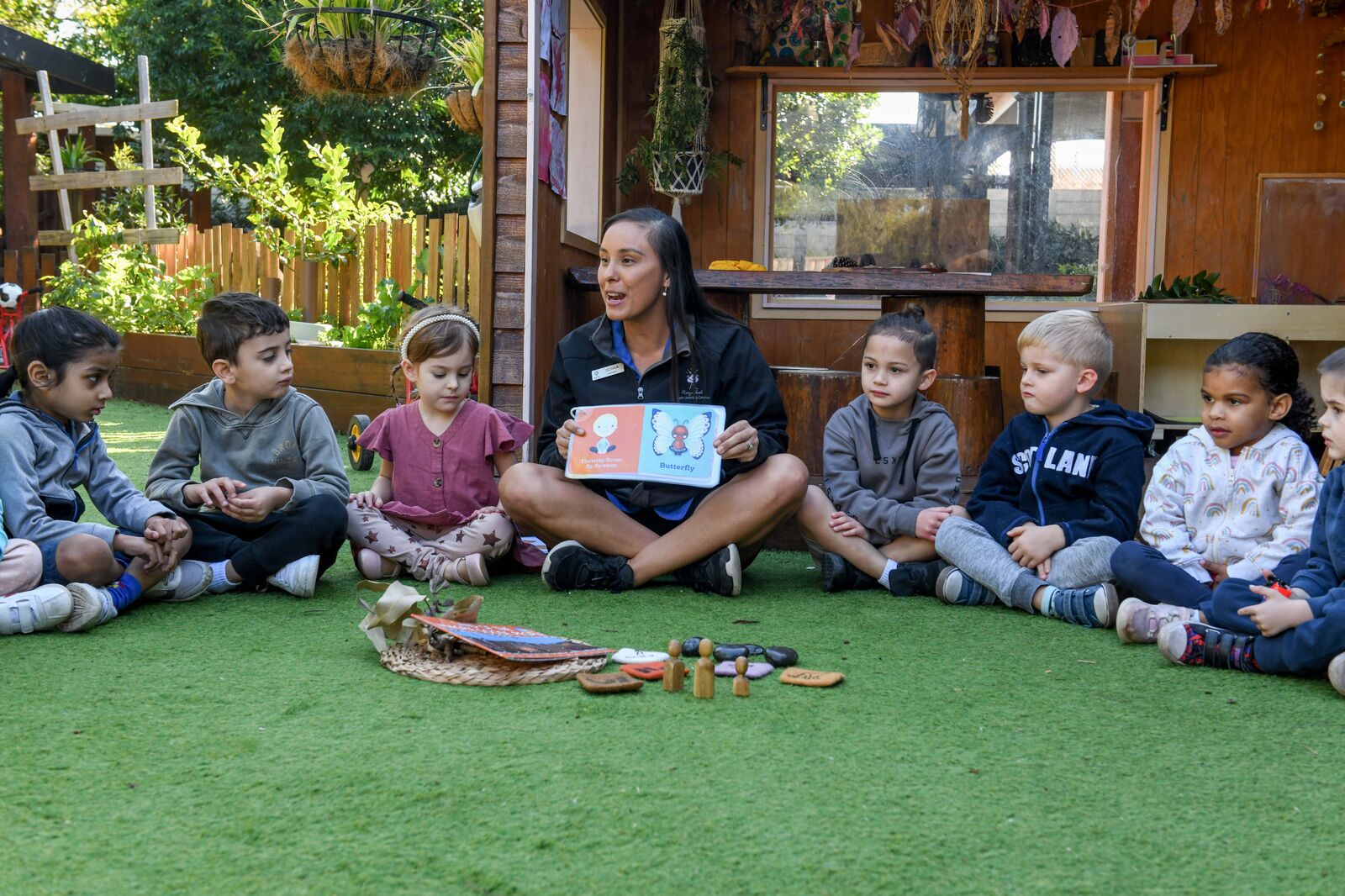
Inclusion Support QLD is part of the Inclusion Support Program and is managed by KU Children’s Services, in partnership with Cairns and District Child Care Development Association.
The Inclusion Support Program aims to build the capacity and capability of educators to address participation barriers for all children through implementing quality inclusive practices.
Understanding Inclusion
When we are talking about inclusion, are we talking about the same thing?
Inclusion, as stipulated in the Early Years Learning Framework V2.0 involves:
‘taking into account all children’s social, cultural and linguistic diversity (including learning styles, abilities, disabilities, gender, sexual identity, family circumstances and geographic location) in curriculum decision-making processes. The intent is to ensure that:
- all children’s experiences are recognised and valued
- all children have equitable access to resources and participation, and opportunities to demonstrate their learning and to value difference.’
Australian Government Department of Education [AGDE] (2022). Belonging, Being and Becoming: The Early Years Learning Framework for Australia (V2.0). Canberra: Australian Government Department of Education for the Ministerial Council, (p.66).
What you will find on this page:
Inclusion is Important
Everyone benefits
All children have the right to be included in early education and care. We know from research that all children benefit from belonging to, and participating in, quality inclusive child care.
An inclusive service provides an opportunity for children to play, develop and learn together with children of their own age. These relationships are the foundations for learning and provide a powerful way of belonging to a group and developing a sense of self.
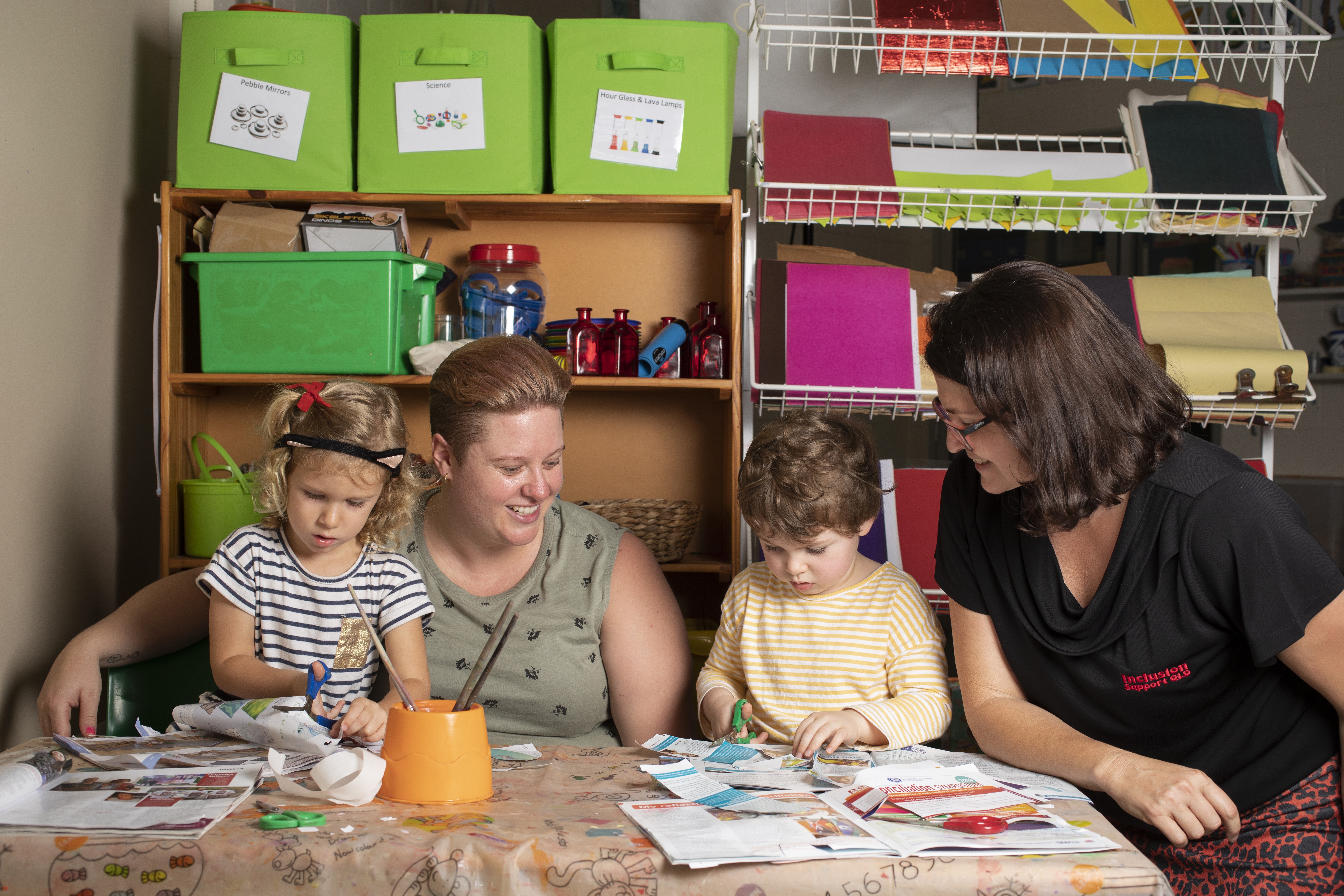
When educators value inclusion you will see them...
- Embracing the rights of all children to access and participate in programs
- Welcoming all children at the service
- Providing flexible programs and environments that meet individual needs and interests
- Building partnerships with families and communities
- Working collaboratively
- Engaging in ongoing reflection and learning
- Inviting and welcoming family and community participation
- Knowing their knowledge, skills and experience are valued
How will we support you?
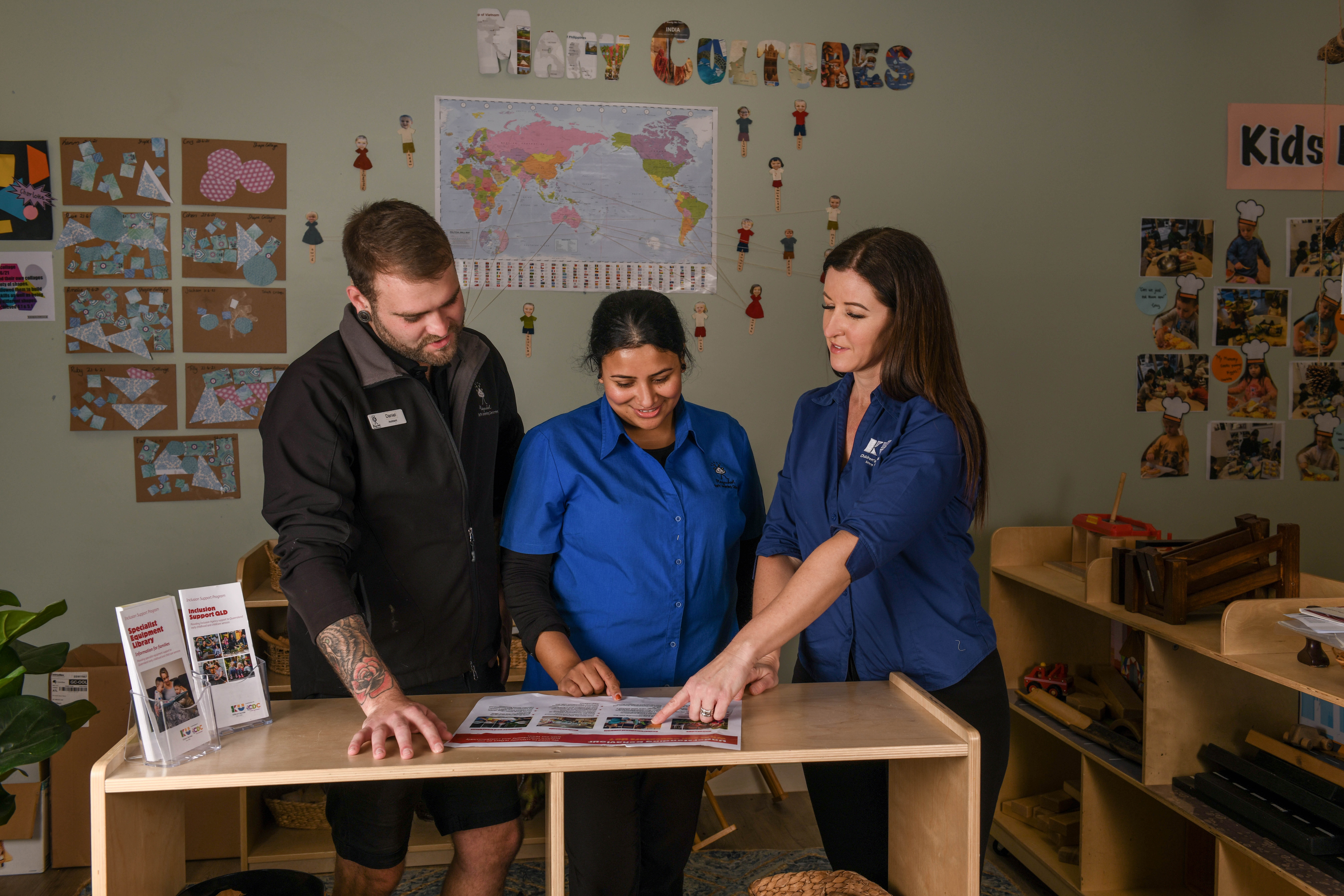
We recognise that the inclusion journey of your service is unique and that the inclusion needs of educators, individual care environments and the service as a whole quite often differ. The support we provide will be tailored to meet the individual needs of your service.
You will be directly supported by our team of Inclusion Professionals, who are based at Inclusion Hubs across QLD.
Our Inclusion Professionals use a strengths-based approach, including coaching and practical inclusion advice when supporting your service. Support is provided through a combination of phone appointments, online appointments and service visits.
What is the role of an Inclusion Professional?
Your Inclusion Professional can/will support you to:
- Acknowledge and identify your strengths
- Reflect on your understanding of inclusion and identify inclusion barriers
- Critically reflect on your practices
- Overcome specific inclusion barriers by identifying and planning practical strategies and solutions through the development of a Strategic Inclusion Plan
- Implement your services Strategic Inclusion Plan, reflect on your progress and identify next steps
- Promote an understanding of inclusion principles with families and other professionals
- Access all Inclusion Support Program (ISP) resources including the Inclusion Development Fund, if required, to support children to access and participate in every aspect of the program
- Work in partnership with families, community groups, services and organisations
As Inclusion Professionals we are unable to:
- Assess or support individual children
- Provide funding for one to one support for individual children
- Tell you what to do or what resources you have to use
- Provide access to specialist equipment for therapy purposes
- Complete planning and/or funding applications on your/the services behalf
- Recommend ECEC services to families
Strategic Inclusion Planning
A Strategic Inclusion Plan is the first step in accessing support from the Inclusion Agency.
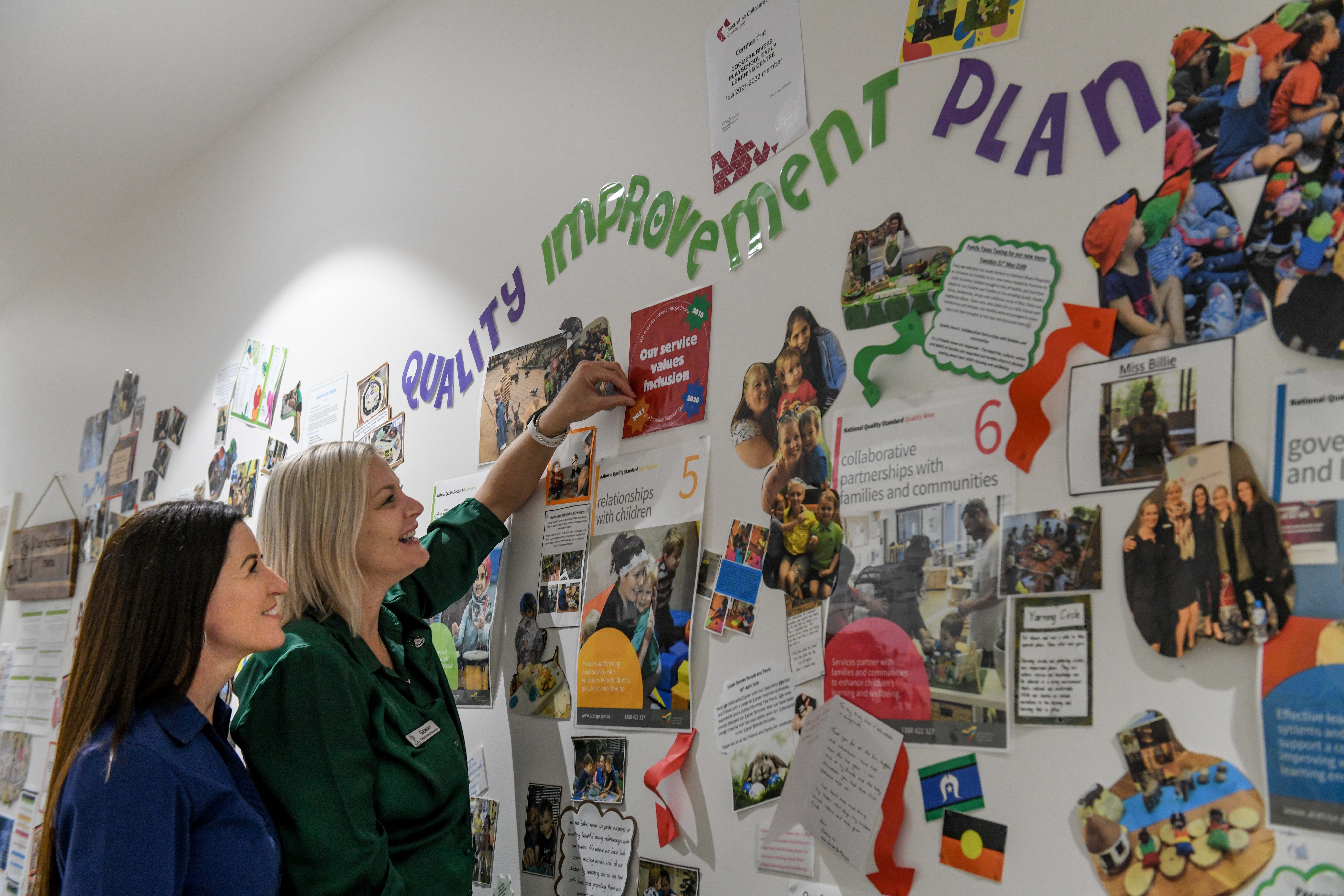
The Strategic Inclusion Plan (SIP) is a self-guided inclusion assessment and planning tool for services, which includes strategies for improving and embedding inclusive practice, in line with the National Quality Standard (NQS).
Developing a Strategic Inclusion Plan (SIP), in conjunction with us, supports you to identify your current inclusion capacity as well as identify strategies and actions you and your team will implement to ensure all children can actively and meaningfully participate in the program.
A Strategic Inclusion Plan is developed, implemented and evaluated within a 12 month period and can be updated at any time to reflect changes and to record progress.
A Strategic Inclusion Plan also links with your service’s Quality Improvement Plan and may be sighted by Authorised Officers from state and territory regulatory authorities, as evidence of critical reflection and inclusion planning.
Valuing inclusion
Inclusion Support QLD recognises your service’s ongoing commitment to inclusion by providing your service with an “Our service values inclusion” sticker when they have an active Strategic Inclusion Plan.
This sticker can be displayed to show families, the community, Authorised Officers, and any other visitors to your service that you value diversity and recognise inclusion as a right for all children.
Each year that your service maintains an active SIP, your Inclusion Professional will provide your service with a star which shows that you continue to be a service that values inclusion.

Children with additional needs
While there is no national definition of ‘additional needs’, there are children who may need or require specific considerations or adaptations to participate fully in ECEC services (although not all children with additional needs will require support).
The Inclusion Support Program (ISP) supports educators to address access and participation barriers and to support the inclusion of children with additional needs, with their typically developing peers.
- The Inclusion Support Program recognises that additional needs may arise for children who:
- Have a disability or developmental delay
- Are presenting with challenging behaviours
- Have a serious medical or health condition, including mental health
- Are presenting with trauma-related behaviours
and for children from:
- Aboriginal and Torres Strait Islander backgrounds
- Culturally and linguistically diverse backgrounds
- Refugee or humanitarian backgrounds
- who may also require special considerations, such as cultural support, to ensure that they are able to participate fully in early childhood education and care, out of school hours care and family day care services and experience positive outcomes.
Extract from: Department of Education, Inclusion Support Program Guidelines, Version 2.6, October 2025.
Specialist Equipment Library

Inclusion Support QLD includes the Specialist Equipment Library (SEL). The SEL loans a range of specialist equipment, free of charge, to early childhood education and care (ECEC) services to enable children to access and participate in all aspects of an ECEC program.
Additional Support Options
Through the development of a Strategic Inclusion Plan, educators might identify inclusion barriers that cannot be resolved through accessing support from the Inclusion Agency or Specialist Equipment Library (SEL) alone.
In these circumstances, the Inclusion Support Program (ISP) can provide further support to services through the Inclusion Development Fund Manager (IDFM).
Inclusion Development Fund Support Options
There are three streams of Inclusion Development Funds (IDF) available to support educators in Centre Based Day Care Services. Each have different eligibility criteria, application processes and approved funding purposes. These streams of IDF funding include:
- Immediate/Time Limited Support
- Subsidy for an Additional Educator
- Innovative Solutions Support
Inclusion Together
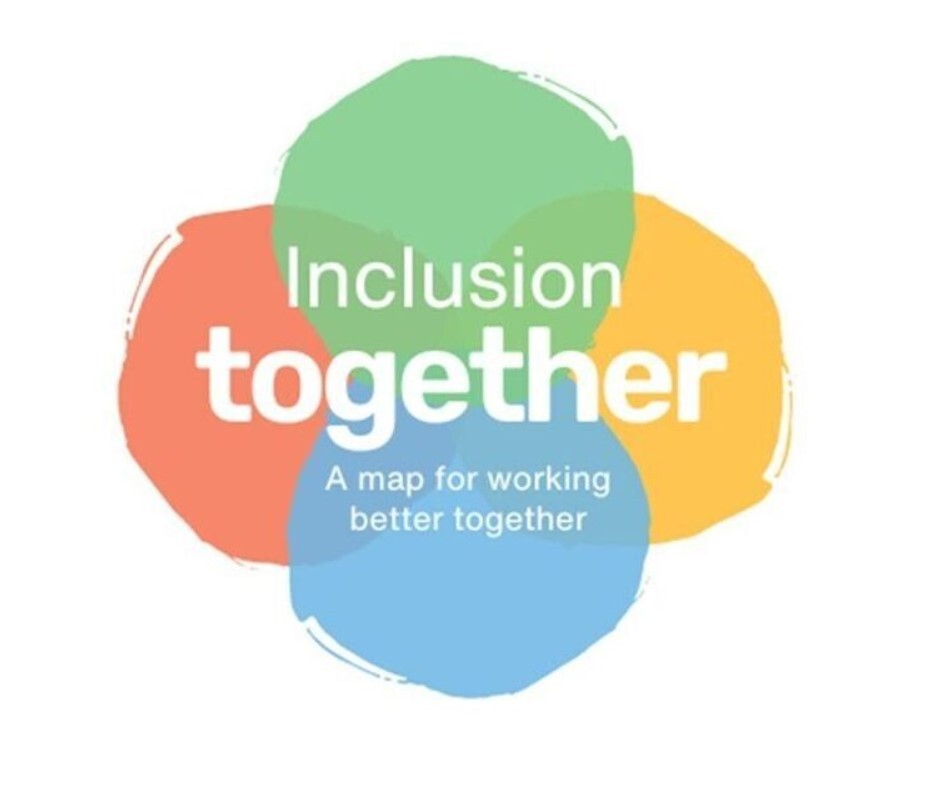
Inclusion Together is a free online resource that provides practical tools for supporting a child's learning, development and inclusion in an early childhood education and care service. This resource is designed to support the inclusion of children with disability or developmental differences through building an inclusion team that works well together.
Each section of Inclusion Together has information, ideas, strategies and videos that support an inclusion team to work together to strengthen inclusion and support children to play, learn, develop and thrive.
How to access support
You are encouraged and welcome to contact your Inclusion Professional directly, at a time that is convenient for you Their contact details can be located at the bottom of each email they have sent the service.
Alternatively, please feel free to contact our friendly staff on 1800 811 039 (toll-free) or email us at inclusionsupportqld@ku.com.au
Inclusion Support QLD is also committed to contacting each service at least twice each year, via phone or email. This provides you with the perfect opportunity to access support and share your inclusion achievements and challenges with your Inclusion Professional.
Your Inclusion Professional will also be able to share with you information about available inclusion resources, upcoming professional conversations opportunities and program support options.
We look forward to working with you soon and sharing in your inclusion journey.
Inclusion in Action
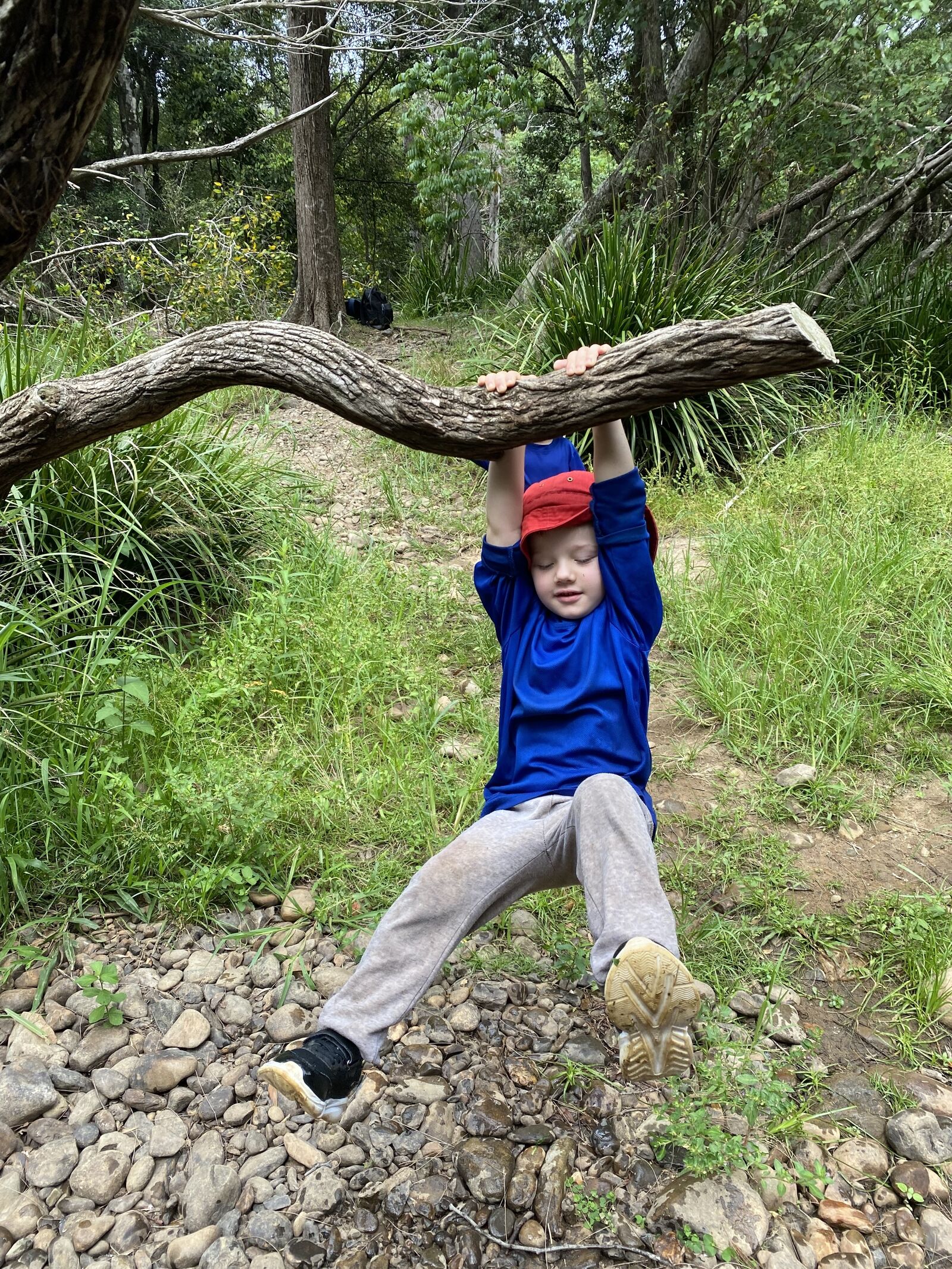
Inclusion on Country
Clearview Early Learning and Kindergarten is an established centre nestled in a beautiful semi-rural environment on the Gold Coast. Nominated Supervisor Debbie Priest and Educational Leader Netty Lester share how their service has developed the art of teaching through nature, by creating natural environments where children can learn holistically and care for the land, plants animals and people.
Click below to read about how they are connecting children to Country.
